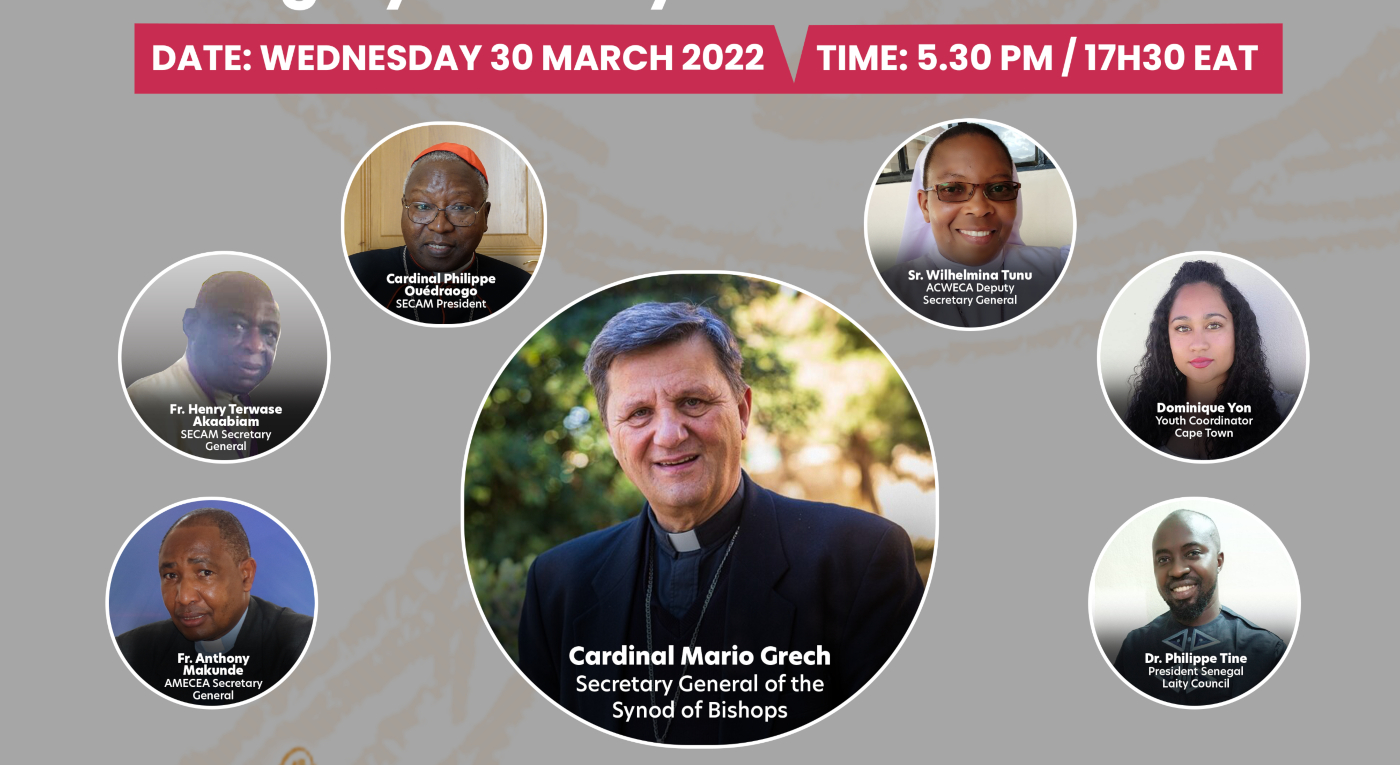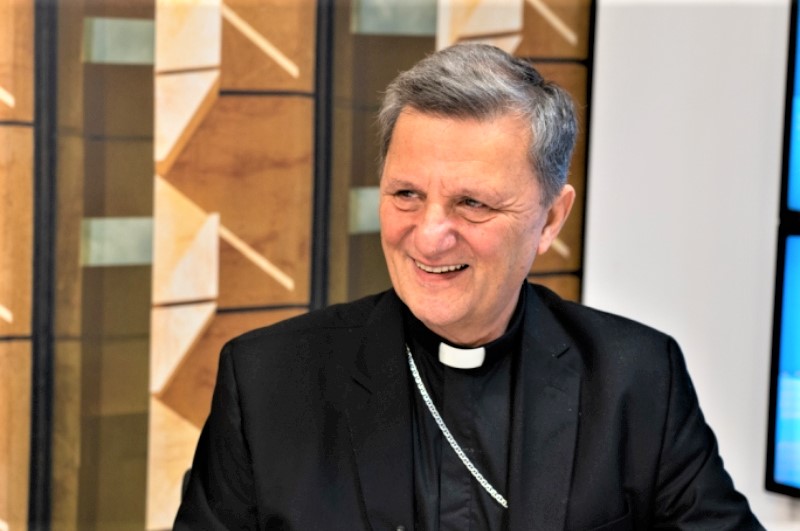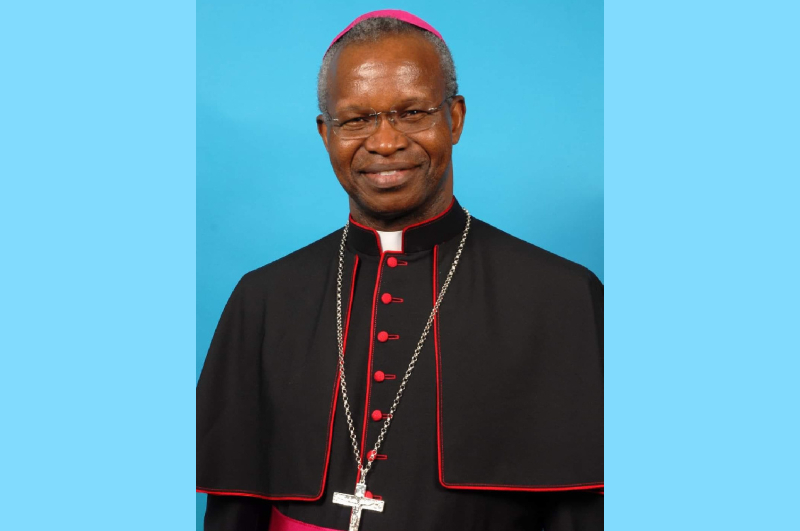

The contribution of the people of God in Africa in the ongoing preparations for the Synod on Synodality is “very promising,” a Vatican Cardinal has told participants at a virtual event.
Addressing participants during the Wednesday, March 30 webinar, which the Symposium of Episcopal Conferences of Africa and Madagascar (SECAM) organized, the Secretary General of the Synod of Bishops said the participation of local churches is fundamental for the success of the present synod.
“In this synodal process the contribution of Africa is very promising,” Mario Cardinal Grech said, and added, “There is no doubt that the subject of this consultation is the people of God, of the whole people of God; no one is excluded.”
Cardinal Grech emphasized the need to have all the people of God involved in the synodal process saying, “If a Diocese or a particular group or religious institute decide for some reason or another not to participate, we will be missing a lot.”
The contribution of the people of God in Africa “can bring a solid contribution to the whole church,” the Maltese-born Cardinal said during the SECAM webinar, and appealed, “Please try to do your best to involve the particular churches in every Diocese, every parish and every community to participate.”
“We cannot permit to miss such great gifts that the Holy Spirit has really enriched the Church in Africa,” Cardinal Grech said, reiterating the need to get all the people of God involved in the synodal process.
The Catholic Church leader who was appointed Secretary General of the Synod of Bishops in September 2020 continued, “If all participate in the consultation in the particular churches, sharing the experience of listening to each other, not only will all the people of God have been consulted but all will learn from each other.”
In a statement announcing the webinar that was organized under the theme, “The Church in Africa on the Synodal Path: Living Synodality in Local Churches,” SECAM leadership says the focus of the synodal process “is on how the Holy Spirit is inviting local Churches to journey together.”
“The People of God are being invited to embrace the spirit of dialogue, participation, and co-responsibility so as to discern together how God is calling the Church to be in the third millennium,” SECAM officials say in the three-page statement that included the program of the webinar shared with ACI Africa ahead of the March 30 session.
Reflecting on the focus of the Synod on Synodality during the webinar, Cardinal Grech said, “In this Synod, we are not invited to find a solution for the various difficulties and challenges that we encounter in our pastoral and social experience.”
He explained in reference to the theme of the Synod, “A synodal Church, communion participation and the mission means what the spirit is asking from us all to have a more synodal Church so that we can all implement a synodal style in our Parishes, Dioceses and communities.”
“This synod offers the opportunity for the local churches to voice their concerns. It is a time to let everybody, the liberal and the conservative to speak frankly, openly and air their concerns,” the 65-year-old Catholic Church leader who was elevated to Cardinal in November 2020 said.
The synodal process, he continued, “is really a privileged time and space in which the inner voice of the Church is allowed to speak; a time and space in which the Holy Spirit is allowed to speak through the different organs of the Church.”
The member of the Pontifical Council for Promoting Christian Unity further said, “It is time for the polyphony that constitutes the Church to be played and please don't be surprised if there are some false doubts along the way.”
“I speak of false notes because I recognize and acknowledge the fact that this synodal process is not an easy one. It is not exempt from mistakes, human weaknesses, misinterpretations and maybe confusions,” he said.
Cardinal Grech told participants during the March 30 SECAM webinar to remember that even our Lord “was misinterpreted; His actions, his good deeds at times, created confusion and his deeds were mistaken for acts of the devil.”
The synodal process is also “a time for silence,” the Maltese-born Cardinal said, and explained, “The synodal process is not only a time to speak, but a time for silence. Our speaking about the issues of the Church needs to be accompanied by a time of silence, a time of discernment, a time to make sense of what must have been said.”
“The synod is also a time for the Pope, the Bishop sent the Church to meditate on what was heard and to find together the path forward,” he further said.
The Cardinal continued, “To keep silent when one is supposed to speak could be diabolic. But to keep silent after having had time to speak is divine and only the silence that comes with the time to speak will help reduce mistakes, incomprehension and confusion.”
He said the ongoing synodal process is the “antidote to clericalism” and explained, “If we really manage to appreciate every baptized and recognize his rights and her rights and duties, we will try to work together hand in hand, respecting the individual charisms and ministries in the ecclesial community.”
“There is no flock without a shepherd be it a Diocese or a Parish. But again, there is no shepherd without a flock, so we really have to overcome this gap. I think this is fundamental for this present in synodal experience,” Cardinal Grech said during the March 30 SECAM webinar.
This article is republished from ACI Africa.
Select Payment Method
Pay by bank transfer
If you wish to make a donation by direct bank transfer please contact Fr Paul Hamill SJ treasurer@jesuits.africa. Fr Paul will get in touch with you about the best method of transfer for you and share account details with you. Donations can be one-off gifts or of any frequency; for example, you might wish to become a regular monthly donor of small amounts; that sort of reliable income can allow for very welcome forward planning in the development of the Society’s works in Africa and Madagascar.
Often it is easier to send a donation to an office within your own country and Fr Paul can advise on how that might be done. In some countries this kind of giving can also be recognised for tax relief and the necessary receipts will be issued.



